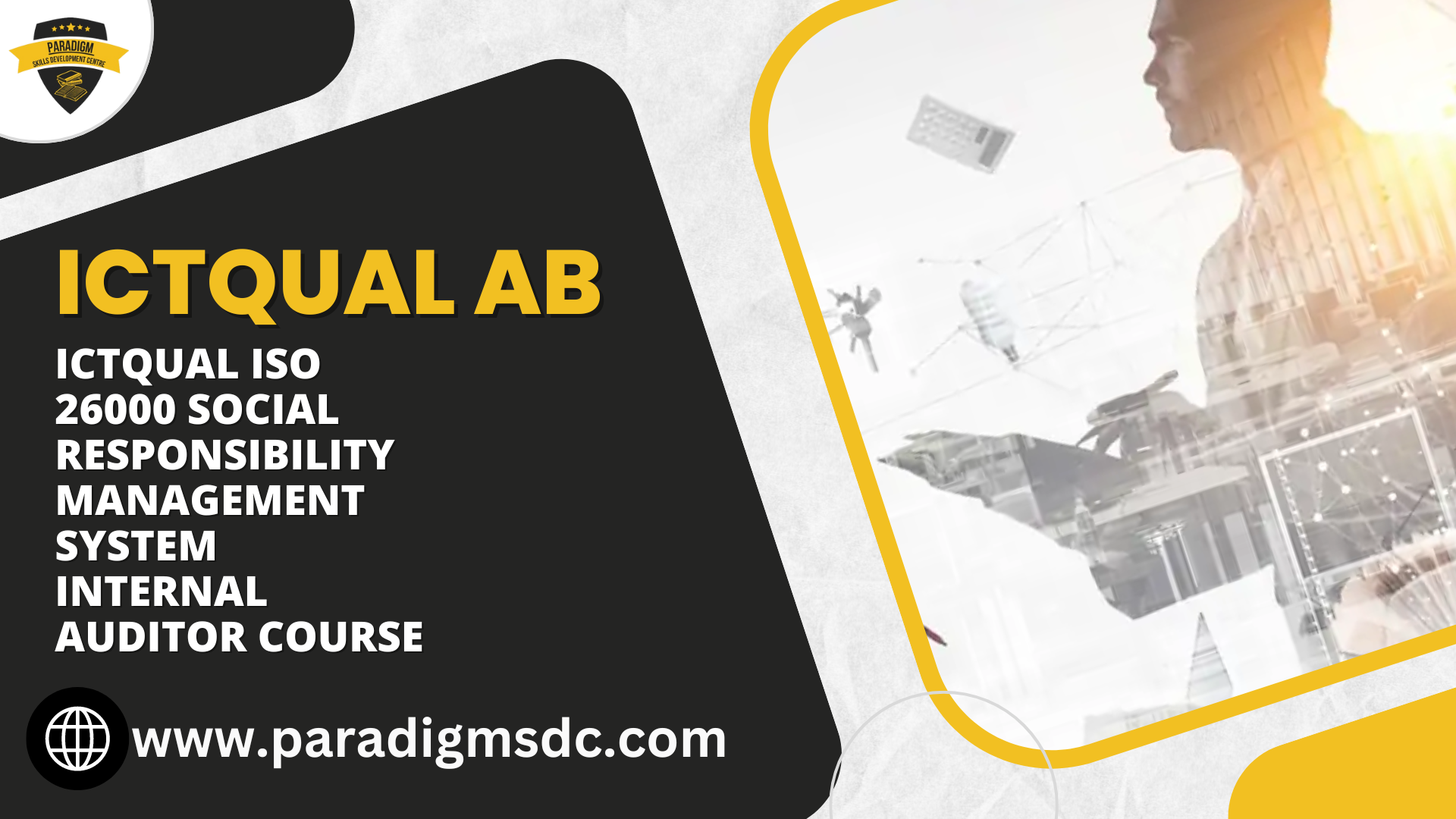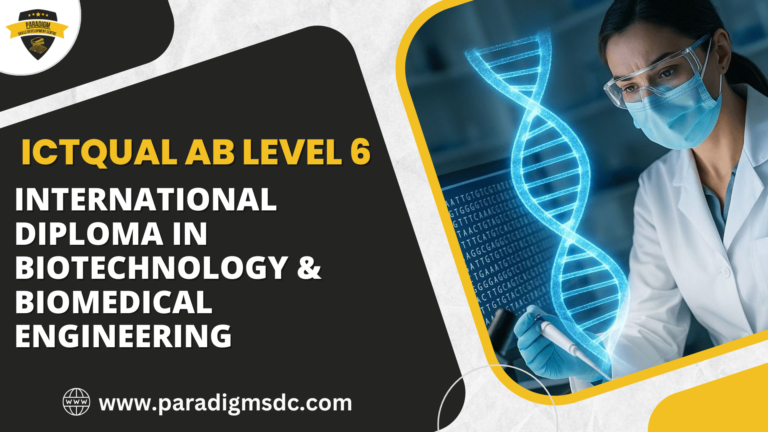Course Introduction
The ICTQual ISO 26000 Social Responsibility Management System Internal Auditor Course provides a comprehensive understanding of the principles and guidelines set forth by the ISO 26000 standard. This course is essential for individuals aiming to ensure their organization’s operations are socially responsible, ethical, and sustainable. By focusing on internal auditing, the course helps participants identify areas for improvement and implement effective social responsibility strategies.
Course Overview
This course covers a wide range of topics related to social responsibility, including core subjects like organizational governance, human rights, labor practices, the environment, fair operating practices, consumer issues, and community involvement. Participants will learn how to conduct internal audits to assess compliance with ISO 26000 and drive continuous improvement within their organizations.
Course Study Units
- Introduction to Social Responsibility
- Understanding the ISO 26000 Standard
- Internal Auditing Principles
- Audit Criteria and Compliance Assessment
- Risk Assessment and Mitigation Strategies
- Stakeholder Engagement and Communication
- Measuring Social Impact
- Continuous Improvement and Reporting
Learning Outcomes
Upon completing this course, participants will be able to:
- Introduction to Social Responsibility
- Understand the fundamental principles and concepts of social responsibility.
- Recognize the importance of social responsibility in organizational sustainability and reputation.
- Identify the role of businesses in addressing societal and environmental challenges.
- Appreciate the historical evolution and global significance of social responsibility standards.
- Understanding the ISO 26000 Standard
- Familiarize with the scope, principles, and guidance areas outlined in the ISO 26000 standard.
- Determine the applicability of ISO 26000 to different types of organizations and industries.
- Define key terms and concepts relevant to social responsibility management systems as per ISO 26000.
- Internal Auditing Principles
- Gain proficiency in the principles and techniques of internal auditing.
- Develop skills in audit planning, risk assessment, evidence gathering, and reporting.
- Apply internal auditing principles to evaluate social responsibility management systems effectively.
- Audit Criteria and Compliance Assessment
- Understand the criteria for evaluating social responsibility practices against the requirements of ISO 26000.
- Develop methods for assessing compliance with the standard and identifying areas for improvement.
- Learn to document audit findings and recommendations for enhancing compliance with ISO 26000.
- Risk Assessment and Mitigation Strategies
- Identify social responsibility risks and opportunities within organizational processes and activities.
- Assess the likelihood and impact of social responsibility risks on organizational objectives.
- Develop risk mitigation strategies to address identified risks and vulnerabilities in social responsibility practices.
- Stakeholder Engagement and Communication
- Recognize the importance of engaging with stakeholders to promote social responsibility initiatives.
- Identify key stakeholders, solicit their input, and address their concerns effectively.
- Develop communication strategies for conveying social responsibility objectives and progress transparently.
- Measuring Social Impact
- Define key performance indicators (KPIs) for evaluating the social impact of organizational activities.
- Collect, analyze, and report data on social responsibility performance effectively.
- Utilize benchmarking techniques to compare social responsibility performance and drive continuous improvement.
- Continuous Improvement and Reporting
- Develop action plans and implement improvements based on audit findings and stakeholder feedback.
- Integrate social responsibility principles into organizational policies, procedures, and practices.
- Establish reporting mechanisms for documenting progress, achievements, and challenges in social responsibility management.
Course Benefits
- Enhanced Understanding: Gain a deep understanding of ISO 26000 and its application in the workplace.
- Practical Skills: Acquire practical auditing skills to assess and improve social responsibility practices.
- Career Advancement: Enhance your professional credentials and open up new career opportunities in social responsibility management.
- Organizational Improvement: Contribute to your organization’s social responsibility initiatives and drive positive change.
- Networking Opportunities: Connect with other professionals and experts in the field of social responsibility.
Who Is This Course For?
This course is ideal for:
- Internal auditors and compliance officers seeking to specialize in social responsibility.
- CSR (Corporate Social Responsibility) managers and coordinators.
- Environmental and sustainability professionals.
- Human resources and labor relations specialists.
- Quality management professionals.
- Anyone involved in the implementation or management of social responsibility initiatives within their organization.
Future Progression
Upon completing the ICTQual ISO 26000 Social Responsibility Management System Internal Auditor Course, participants can further their expertise by pursuing advanced certifications and training in social responsibility and sustainability. Potential progression paths include:
- ISO 26000 Lead Auditor Certification: Advanced training to lead and manage comprehensive social responsibility audits.
- Sustainability Reporting Specialist: Specializing in sustainability reporting and transparency.
- Environmental Management Systems Auditor: Focusing on environmental sustainability and ISO 14001 standards.
- Corporate Social Responsibility (CSR) Consultant: Providing expert advice and guidance on CSR strategies and implementation.
The ICTQual ISO 26000 Social Responsibility Management System Internal Auditor Course is a crucial step for professionals dedicated to making a positive impact on their organizations and society. By equipping participants with the necessary knowledge and skills, this course empowers them to drive meaningful change and foster a culture of social responsibility.







